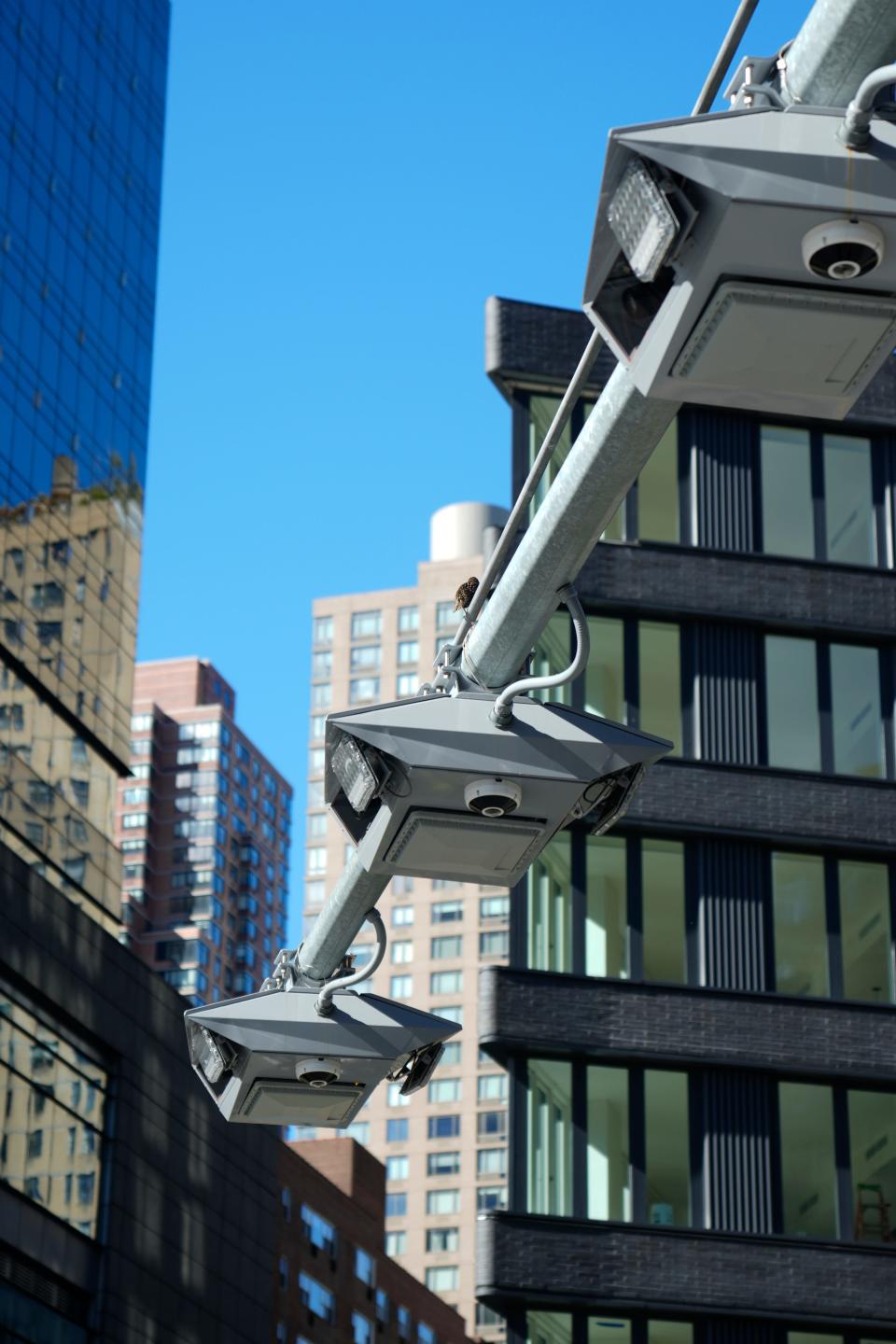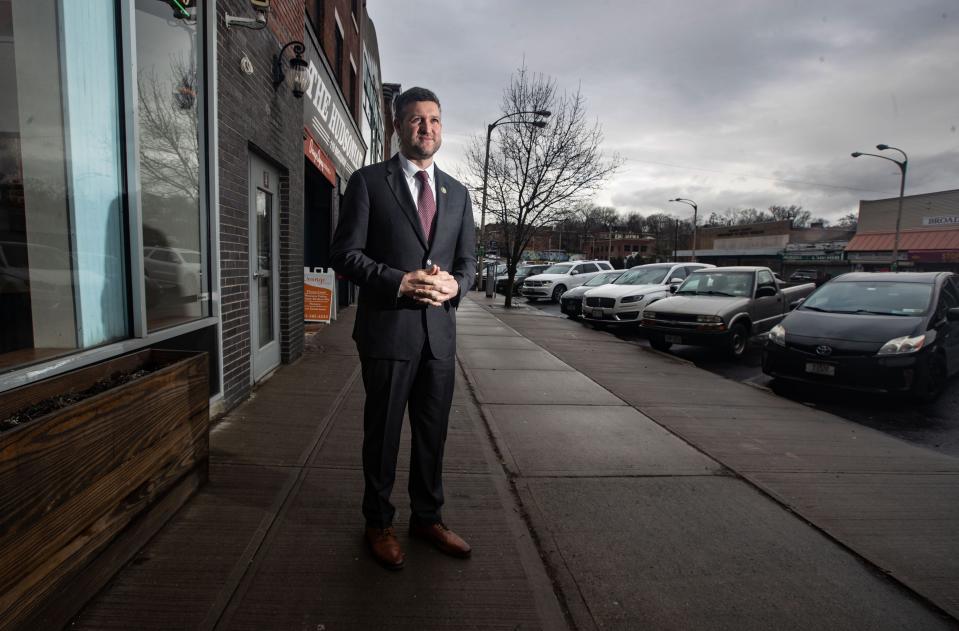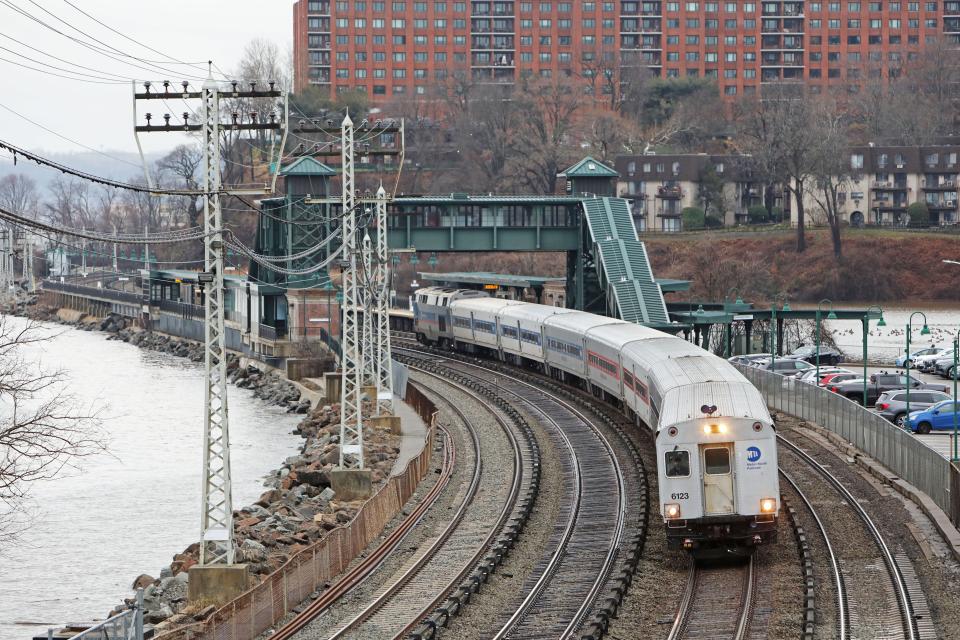NYC $15 toll: Can Hudson Valley commuters speak out before congestion fee starts?
New York City commuters facing a new $15 daily toll to drive on Manhattan's busiest streets will get a chance to vent at a set of upcoming hearings to be held in Lower Manhattan.
Rep. Pat Ryan wants the Metropolitan Transportation Authority to take those hearings on the road.
Ryan, who represents Orange County and parts of Ulster and Dutchess counties, is urging the transit agency to add sessions in the Hudson Valley to hear directly from residents about their region's limited train service and the impact of paying a few thousand dollars more per year to drive to work.
"The MTA does not provide a viable alternative to driving to work for my constituents and there is extremely limited MTA service in my district," Ryan wrote in a letter to Janno Lieber, the MTA's CEO. "Punishing suburban New York residents with a congestion price that will not increase their level of access to MTA services is appalling."

The congestion-pricing toll could start as soon as June and will affect vehicles entering any parts of Manhattan at or below 60th Street. State lawmakers and then-Gov. Andrew Cuomo authorized the charge in 2019 to ease traffic and air pollution in the city's congested core and raise $1 billion a year for transit-system upgrades.
An advisory panel and the MTA board finally specified the proposed charges for drivers late last year: $15 for passenger vehicles, and $24 or $36 for trucks, depending on their size.
The toll will be charged to a driver's EZPass. Those who don't have EZ Pass will get a bill in the mail — for a higher amount ($22.50 for passenger vehicles; $36 and $54 for trucks.)
Hudson Valley car commuters hit hard by congestion pricing
Most Hudson Valley residents who work in Manhattan's central business district — the area subject to the new toll — take public transportation to work. But thousands go by car, particularly those who live farthest from the city and on the west side of the Hudson, where there are fewer train rides and longer commutes.
Roughly 8,000 Orange County residents — more than half of those commuting to the central business district —drove to work in 2019, the last year before the pandemic upended commuting patterns, according to estimates provided by the Regional Plan Association, a think tank for the tri-state New York City metro area.
Also commuting by car that year into the congestion zone, the association estimated, were another 24,000 workers from Westchester County, 5,800 from Dutchess, 5,500 from Rockland, 3,500 from Putnam, 1,900 from Ulster and 1,000 from Sullivan.
NJ lawsuit: Murphy suit says NYC congestion pricing discriminates against NJ drivers
In an interview with the USA Today Network, Ryan said he believed public input at local hearings could prod the MTA to adjust its plans before the tolls begin. Among other steps, he wants the board to grant toll exemptions for New York City police officers and firefighters and Hudson Valley growers who drive their produce to markets in the central business district.
"It really punishes the exact people that we're wanting to support, who are middle-class working people, public servants, people that are feeding the community, teachers," he said of the toll plan. "I think they really missed the mark. It just really hurts the same people that we're supposed to be making public policy to help, middle-class folks."

Ryan also objected that the MTA has given no assurances that capital funds generated by the new tolls will be used to expand Metro-North Railroad service on the west side of the Hudson. Orange County commuters still have no "one-seat ride" into Manhattan — they have to change trains to get there — and Ulster County has no Metro-North station at all, he pointed out.
How is the MTA gathering feedback on congestion pricing?
The MTA plans to hold four hybrid hearings to gather both in-person and online public input on its proposed tolls on Feb. 29, March 1 and March 4 at its Lower Manhattan offices. Members of the public who register to speak can do so in person or participate by phone or Zoom.
There are no plans to hold additional hearings in the Hudson Valley or any other parts of the MTA service area. Aaron Donovan, an MTA spokesman, said the agency has found that holding remote and hybrid hearings and meetings since the pandemic began has increased public participation.

The MTA is also fielding written comments on its toll plan through March 11 through an online portal.
The MTA board is expected to take a final vote on the plan after the public comment period. The agency plans to hold a 30-day "testing phase" and a 60-day public information campaign before a ring of street cameras around the central business district begin reading license plates and charging drivers. Implementation could be delayed by legal challenges by New Jersey officials and others.
NY reactions: Hudson Valley leaders react to possible $15 congestion pricing toll to drive into Midtown
What are the toll details?
Under the MTA's proposal, drivers must pay the full toll during "peak periods" — at all hours every day except between 9 p.m. and 5 a.m. on weekdays and between 9 p.m. and 9 a.m. weekends. The discounted, EZPass charge for those overnight hours is $3.75 for cars and $6 or $9 for trucks.
EZPass holders who enter the central business district through any of four tunnels during peak periods pay a reduced charge. Car drivers get a $5 reduction if they come through the Holland or Lincoln tunnels and a $2.50 break for the Queen-Midtown or Hugh L. Carey tunnels. The truck credit ranges from $6 to $20.
Chris McKenna covers government and politics for The Journal News and USA Today Network. Reach him at cmckenna@gannett.com.
This article originally appeared on Rockland/Westchester Journal News: Congestion pricing: Will MTA hold Hudson Valley hearing on $15 toll?

